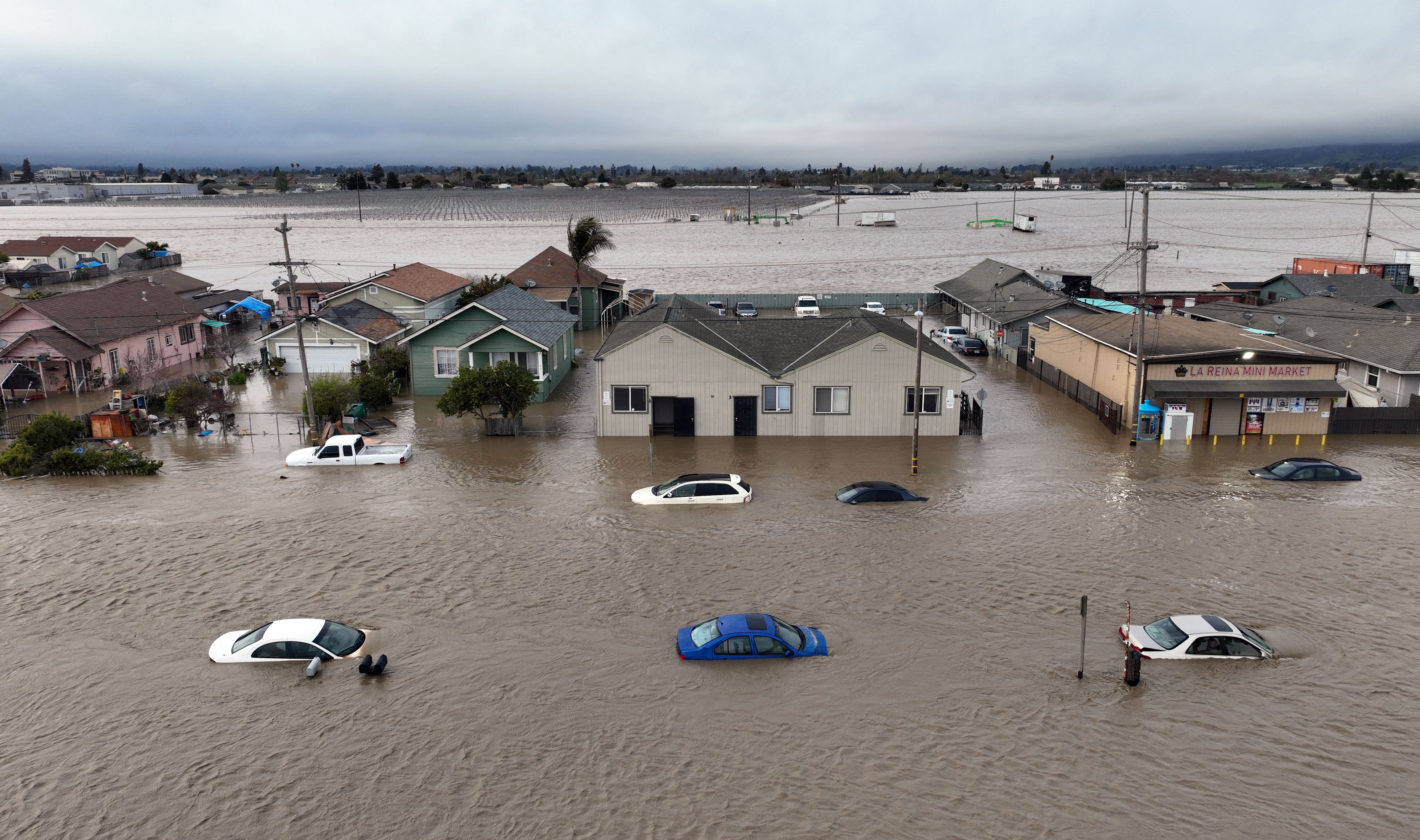Uncertainty is growing among the people who live and work in the Central Coast communities that were overwhelmed by floodwaters.
Hundreds, if not thousands, of farmworkers are both homeless and without a job because of the flooding.
Evacuees needing help stopped by Westview Presbyterian Church in Watsonville Wednesday.
"I have been looking for some help with clothes for my kids," Jessica Cervantes of Pajaro said.
Both she and her husband are farmworkers. She doesn't know what they'll now do for money.
"We have cars, we have to pay insurance, we have to pay for where we are staying, for food," she said. "It is hard."
The founders of Raíces y Cariño , which helps farmworkers, jumped into action, setting up a donation center where evacuees can come to get clothes, food and diapers. So many donations have come in that they had to move from their site to a church.
"It’s been a very heartwarming experience but also heart-wrenching because we’re not just handing out food and diapers, we’re also checking in person to person," Nora Yerena with Raíces y Cariño said. "These are our community members, they’re our friends, they go to school with our kids."
Get a weekly recap of the latest San Francisco Bay Area housing news. >Sign up for NBC Bay Area’s Housing Deconstructed newsletter.
On a broader scale, the agriculture industry has been heavily affected. The farm bureau said the impact will be worse than the January storms, which caused an estimated $330 million in damages.
The California Strawberry Commission said about 20% of the farms in the Pajaro area have been affected by the flooding.
They would have started harvesting in a few weeks, but until the water recedes, it's too early to tell just how bad it'll be.
"Many of them have been operating their farms for multi-generations as a family-owned farmed," said Jeff Cardinale with the strawberry commission. "They’re obviously very concerned. Some of them have significant damage and some have not."



